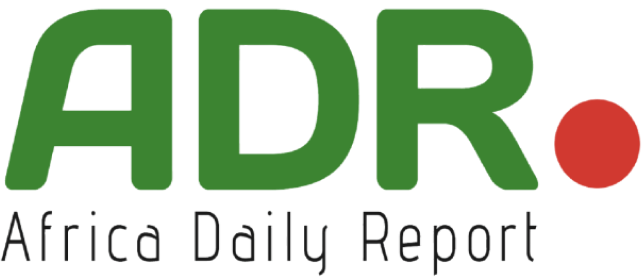
A Scandal with Deep Political and Social Ramifications
In Equatorial Guinea, an unprecedented scandal is shaking the regime of one of Africa’s longest-serving leaders, Teodoro Obiang Nguema Mbasogo, who has ruled since 1979. At the center of this affair is Baltasar Ebang Engonga, known as Bello, head of the tax administration and an influential member of the presidential family. The revelation of sex tapes involving Bello, coupled with suspicions of public fund embezzlement, sheds light on abuses of power within the ruling elite. For many, this incident exposes the internal tensions and rivalries within a regime struggling to maintain cohesion despite over forty years of governance.
Social media, which has become a platform for political discourse in a society where freedom of expression is restricted, has amplified the scandal, enabling citizens to openly criticize the practices of the Obiang family. For the first time, the regime, often perceived as untouchable, is facing social and media pressure that is shaking its image.
A Dynasty Marked by Decades of Scandals
The Obiang family, in power for more than four decades, has solidified its hold over the country by surrounding itself with a small circle of allies and placing family members in key state positions. However, this concentration of power has often led to abuses and scandals involving corruption, nepotism, and misuse of public funds. Teodorín Obiang, the president’s son and vice president of Equatorial Guinea, has been regularly criticized for his lavish lifestyle, having already been involved in multiple judicial cases in Europe over money laundering and embezzlement.
Bello, the president’s nephew and an influential figure in tax administration, follows this long lineage of scandals. But this time, the situation has a different impact: it directly implicates the management of public finances and exposes practices considered intolerable by the population. For some observers, this scandal could be a turning point for the Obiang dynasty, already weakened by internal tensions and recurring accusations of corruption.
An Oil Windfall Serving a Minority
Equatorial Guinea, rich in oil resources, has experienced rapid economic growth, but much of the profits remain concentrated in the hands of the elite. Accusations of diverting public funds to private accounts, supposedly in the Cayman Islands, fuel a sense of anger and injustice among a largely disadvantaged population, despite the country’s wealth. This scandal, involving a high-ranking figure in tax management, raises questions about the use of oil resources and the distribution of wealth within the country.
These practices have economic consequences: Equatorial Guinea, already ranked among the most corrupt countries in the world, could see a further drop in foreign investment. The current crisis may further erode international investor confidence, particularly in the energy sector, which is often critical to the country’s economy. While the oil sector is supposed to generate revenue for infrastructure development and improve living standards, it appears primarily to serve the interests of a minority.
Popular Outrage: Social Media as a Tool of Protest
The widespread distribution of Bello’s sex tapes has sparked an immediate and unprecedented reaction among the Equatoguinean population. In a country where freedom of expression is limited and media outlets are under government control, social media has emerged as an alternative for sharing information and expressing public frustration. Many Equatoguineans see this scandal as a symbol of elite impunity and the widening gap between the rulers and the people.
The videos, which depict Bello in intimate situations in his official office, sometimes with the national flag in the background, have added a strong symbolic element to public indignation. This gap between the difficult daily lives of the majority and the behavior of the elites has fueled latent discontent, strengthening civil society’s opposition to the practices of the ruling family. The scandal could thus become a catalyst for protest in a country that, until now, seemed resistant to popular movements.
Teodorín Obiang: An Heir in Search of Legitimacy
Teodorín, vice president and son of the president, sees this crisis as an opportunity to bolster his own legitimacy by taking action against potential rivals within his own family. By launching an investigation against Bello and organizing a crisis meeting, he aims to establish himself as a strict leader against corruption. This stance could bring him closer to the presidential succession by showing that he can make unpopular decisions for the country’s good.
However, this strategy carries risks. Teodorín could find himself isolated if he fails to maintain unity within the family and among regime allies. Furthermore, his image remains tarnished by accusations of corruption and embezzlement. To secure his power, he will need not only to manage this scandal but also to prove that he can govern beyond the autocratic methods that have characterized his father’s rule. The loyalty of the military, often a guarantor of stability in authoritarian regimes, will be crucial to his success.
A Potentially Devastating Diplomatic Impact
The Bello affair extends beyond Equatorial Guinea’s borders and threatens the country’s international reputation. Bello’s sister, Marisa Nlang Engonga Esono, currently a member of Equatorial Guinea’s delegation to UNESCO, could also face repercussions due to her family connection. International institutions, which had sometimes tolerated Equatorial Guinea’s practices to preserve diplomatic ties, may now apply pressure for more transparency and better governance.
The country’s strategic partners, such as China and Russia, generally support authoritarian regimes without interfering in their internal governance. However, Western countries may seize the opportunity to intensify their criticism and encourage reforms. This affair could thus place Equatorial Guinea in a diplomatic dilemma: to meet Western allies’ demands for transparency or risk isolation on the international stage.
A Growing Call for Reform and Human Rights
In the face of this scandal, many Equatoguineans, including members of the diaspora, are calling for reforms and fairer governance. Calls for a democratic transition are multiplying, and the diaspora in Europe, particularly active, could play a significant role in raising international awareness about the situation in Equatorial Guinea. Diaspora leaders in Spain and France regularly organize events to denounce the abuses of the Obiang family and demand political changes.
Domestically, civil society, though constrained by the regime, could take advantage of this scandal to gain influence and push for institutional reforms. However, the regime may respond by tightening repression, as has been observed in other authoritarian regimes facing protests.
Lessons from Recent Transitions in Central Africa
Equatorial Guinea is not isolated in its quest for stability amid social unrest and internal power struggles. Neighboring countries, such as Gabon and Chad, have gone through political transitions often marked by military intervention. These examples show that authoritarian regimes, even when seemingly secure, can quickly collapse if institutions are not stable enough to manage succession conflicts.
If the Obiang regime wishes to avoid a similar scenario, it will need to consider an orderly transition that can ensure the continuity of power while easing internal tensions. Military leaders, who often guarantee stability, could play a crucial role in preventing a prolonged crisis or direct confrontation between political factions.
A Historical Turning Point for Equatorial Guinea?
This scandal could mark a decisive turning point for the future of Equatorial Guinea. If the Obiang regime refuses to heed calls for reform, public discontent could escalate into a broader protest movement, supported by the diaspora and encouraged by the international community. The country stands at a crossroads: to reform and modernize its institutions or risk exacerbating internal divisions and diplomatic isolation.
For the Obiang dynasty, this crisis may represent the beginning of a profound reckoning. Public pressure for transparency, coupled with international criticism, could force them to consider substantial reforms to prevent a gradual collapse of their authority. Without major changes, the repercussions of the Bello affair could indeed be the prelude to an inevitable political transformation in Equatorial Guinea.
© Odon Bulamba / Africa Daily Report




